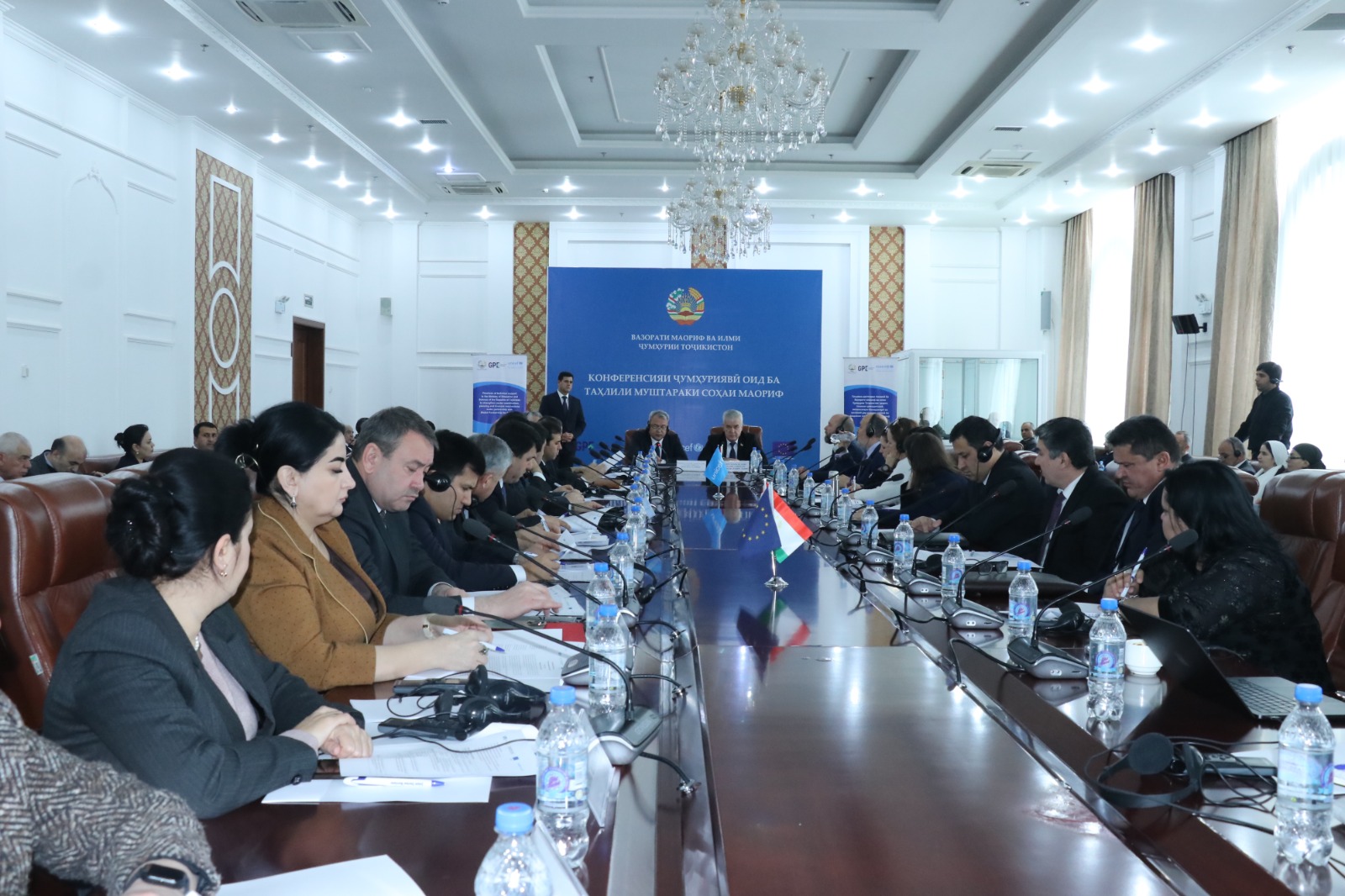
On February 27, 2024, Joint Sector Reviews (JSRs) organized by the Ministry of Education and Science of the Republic of Tajikistan, in close cooperation with in-country partners and education stakeholders, touched upon all long-term outcome areas of the National Strategy for Education Development (NSED) 2030. The event was attended by the Minister of Education and Science of the Republic of Tajikistan Rahim Saidzoda, Senior Education Specialist of the Global Partnership in Education (GPE) and the Country Team Lead Muhammad Tariq Khan, representatives of relevant ministries and departments, and subordinate institutions of the ministry, international development partners and representatives of local organizations.
As part of this event, the public organization Anahita presented the results of a study conducted on the GPE KIX project “Distance education to improve quality and access to school education in Kyrgyzstan, Mongolia, and Tajikistan.” The study took place in several stages and covered 100 schools, 2,000 schoolchildren, and 500 teachers in different regions and cities of the country. As part of the study, 40 interviews were conducted with local government officials, school administrators, IT, and distance education specialists; 20 focus group discussions with students and parents; and 6 participant observation. During interviews, respondents stressed the importance of creating an enabling environment for innovation, including ensuring schools with the necessary technical equipment and supporting teachers to utilize digital tools effectively. The study identified institutional constraints, including the lack of a conceptual framework defining educational innovation, the need for innovative ideas and practices to foster professional communities, and the inefficiency of structures responsible for evaluating and implementing innovation and funding. Moreover, there is a lack of practices for building communities involving parents, teachers, and students. Recommendations included expanding Internet access for teachers and students at affordable prices; upgrading digital resources and providing technical support in schools; addressing gender inequalities through digital technologies; creating an environment that encourages and incentivizes teacher innovation; providing continuous professional development opportunities for teachers; and increasing public awareness about the benefits of digitalization. The presentation of the research findings was well received and generated active participation and interest from the key stakeholders.
The presentation and the Policy Brief can be viewed at the following links:
